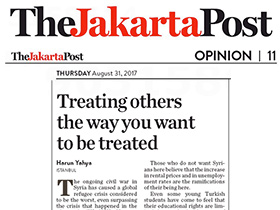
The on-going civil war in Syria has caused a global refugee crisis considered to be the worst even surpassing the crisis that happened in the aftermath of WWII. Turkey has been home to 3.5 million Syrians fleeing the conflict zones to save their lives. The influx of refugees first began with a small group of 250 to 300 Syrians in April 29, 2011 with a demand of refuge in Turkish land.
The 1951 Geneva Convention and its 1967 Protocol were ratified to help protect the rights of refugees. As Turkey is one of the member states to this Convention, technically speaking, it should only receive refugees from European countries. In order to give the status of refugee coming from other states it has to decide together with the UNHCR and eventually place them in a third country. Therefore, Turkey used the term “guests” for the Syrians since this term has no place in international law. Since 2011 Turkey has applied an “open door” policy for them and today only 10% of the Syrians shelter in refugee camps while others live in the big cities. According to the data given by AFAD, the total expenditure made for the Syrian refugees by the Turkish government, NGO’s and the public is 25 billion dollars.
It is obligatory for human beings to help those who escaped from horror in their homeland and asked for help. These people come with their own fruitfulness. We see them as blessings and they are all welcome in our lands. They should all be granted Turkish citizenship in order to enjoy the rights of health care, education, employment, etc. Only those who are affiliated with terrorism should be distinguished and for this reason, the Turkish Internal Affairs Ministry has been carrying out registration processes with extensive security measures.
Given the fragile situation of the refugees both physically and emotionally, some Turkish citizens are not at all pleased with the presence of Syrians. It is because they do not consider the situation in terms of conscience; they put forth economic and social issues which have sprung up as a consequence of their arrival. It is nonetheless quite unbecoming for Turkish citizens to have negative feelings against them. The first thing to be done is to empathize with those who have suffered from war and lost their loved ones. They have left behind their homes, their jobs, their money and everything they had just to save their lives. It would be throwing them into a fire if they asked them to go back to Syria. It would be sending them back to death, there is no other meaning. If anything similar had happened in Turkey, and our citizens had to flee other countries to save their lives, how would they want to be treated by the host country? Therefore, our Turkish brothers should display an attitude of what they would expect from others. A compassionate and a conscientious Muslim would never harbor such hatred against the victims of conflict regardless of their faith, race or nationality.
Those who do not want Syrians here believe that the increase in rental prices and in unemployment rates are the ramifications of their being here. Even some young Turkish students have come to feel that their educational rights are limited due to the involvement of Syrian students. However, they should bear in mind that none of this is the fault of the Syrians. The fact is that some landlords increase their rents or employers decrease the salaries they pay in order to exploit the refugees’ sensitive situation for their own personal benefits. People harboring a similar mentality complain that the Syrians are being looked after with their taxes. It’s true that their needs are being met through the taxes of Turkish citizens but it is the responsibility of every human being to assist the needy from the heart.
Contrary to some of the negative opinions being bandied about, analyses indicate that the Syrian refugees have had a positive effect on economic growth since both consumption and spending have increased due to a population rise. As per the TOBB (the Union of Chambers and Commodity Exchanges of Turkey), the number of companies set up in Turkey with at least one Syrian partner reached nearly 6,000 at the end of 2016. Syrians generated 33.7% of newly formed foreign-partnered companies in the first seven months of 2017, according to a report issued by TOBB.
It is obvious that Syrian refugees trying to adapt to a completely new environment are already going through difficult times. Coming to a place where people speak a different language and have a different culture is not easy. As a nation, it is everyone’s responsibility to support them and help integrate them into our society as our own family members because they are now a part of us and it’s entirely safe to say that they are not going back in the immediate future. Turkey belongs to all of us, including our Syrian guests.
Turkey is a country which consists of migrants as a majority due to forced migrations in the time of the Ottomans and they are the ones who make up our country today. Similarly, we believe that Syrians will ultimately be intermingled with the rest of the country with the help of conscientious Turkish people. To achieve this goal, it would be beneficial to formulate integration programs such as courses for teaching the Turkish language, educational lectures in the arts and sciences, and vocational education programs to prepare them to find proper jobs. On the other hand, with the support of the government, sensible people and NGO’s can organize meetings to help socialize Turkish people with the Syrian refugees and hold conferences to raise better awareness in the country in terms of the Syrian conflict in greater detail, including its psychological impact on the Syrian people in order to best welcome them in the most proper way.
Adnan Oktar's piece in The Jakarta Post:
http://www.thejakartapost.com/news/2017/08/31/treating-others-way-you-want-be-treated.html


